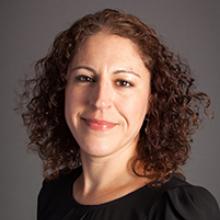Aligned Professional Development │Building Quality in Afterschool
Ensuring strong alignment between quality standards and afterschool programs requires creative thinking, planning, and collaboration. Coordinated alignment strategies include professional learning communities, coursework, coaching, and other professional development activities that reinforce staff members’ knowledge and use of quality standards. Afterschool programs that align professional development with quality standards can support staff learning and sustain continuous improvement by reinforcing professional standards and practices.
- Modalities for Professional Development
- Matching Professional Development Needs With Learning Opportunities
- Resources
- Further Reading
Modalities for Professional Development
Afterschool systems use various training modes to provide professional development; each mode has unique considerations. We briefly introduce the different training modes and suggest practices that will help ensure a successful training engagement.
One-Time Workshops
Workshops include learning opportunities related to a content area, such as science, or that cover a specific topic of interest, such as integrating social and emotional learning into enrichment programs. A program’s leadership should determine the topics or content areas of training sessions with staff input, which can be garnered from staff meetings, staff surveys, ongoing professional assessments, and even informal conversations. Workshops can cover a range of skill levels, from the “basics” for newer staff members to “innovations” for more experienced staff. These sessions can be facilitated on-site or offsite, and the facilitator may be a provider (e.g., a technical assistance provider), another staff member, or an expert from outside the program.
Coursework
Courses typically are taught by external trainers, organizations, or industry professionals either in person or virtually. Courses range in length and often provide participants with a certificate of completion that helps afterschool staff launch, change, or accelerate their careers. Although these professional development opportunities often require more resources, they are important because they allow afterschool staff to learn from others outside their professional networks. External professional development ultimately benefits both the participants and the afterschool program itself by exposing staff to new ideas and perspectives.
Coaching
Coaches support staff as they grow their capacity to plan, coordinate, and incorporate quality strategies into daily program offerings. Coaching should be responsive to the specific needs and interests of staff members. It can be provided by an external expert (e.g., consultant) or a peer with strong expertise in program delivery and coaching. Coaches can be used in various capacities, including training staff, facilitating professional learning communities, observing program activities, and planning for program improvement.
Professional Learning Communities
Professional learning communities offer participants opportunities to practice skills, deepen understanding, and engage in collaborative inquiry with their peers. Afterschool staff typically participate in small cohorts (up to 10 people), and are united by a shared interest in a specific topic. The goals typically include solving a collective problem, developing new skills, or connecting professional practices to quality standards. The benefits of participating in a professional learning community include collaborative professional learning, gaining content knowledge to implement, leadership development, and self-efficacy.
Degree Programs
A degree-granting program is an academic or vocational program attached to an established university, trade school, or accredited institution. Staff with various degrees support quality afterschool programs, including education; psychology; community organizing; nonprofit management; and science, technology, engineering, and mathematics. Increasingly, more degree-granting programs are focusing specifically on youth development and the afterschool field; however, given the diversity of the afterschool field, no single type of degree-granting program will benefit all afterschool staff.
Matching Professional Development Needs With Learning Opportunities
A thorough understanding of the professional development needs of afterschool staff can inform decisions about which content and delivery modes will be most useful. Likewise, understanding the current learning opportunities will inform future investments in professional development. The needs of staff and current offerings will change across time, making it necessary to revisit these topics every few years.
Understanding Professional Development Needs
Ideally, existing learning opportunities will meet the professional development needs of afterschool staff. One step toward this goal is asking staff members to share what they believe they need to be more effective in their roles. Input from afterschool staff can be solicited in multiple ways; there is no one ideal way. A survey will likely work well for those interested in hearing from a large group of afterschool staff (e.g., statewide initiatives). Inviting staff to share their needs in focus groups or staff meetings may work well for smaller groups. Remember to include staff at all levels—direct service, supervisory, and system level. Although it is important to offer support to staff who work directly with youth, it is equally important to support supervisory staff and those working at the system level.
It also may be worthwhile to better understand the background and personal characteristics of afterschool staff, including education and training, prior experience, age groups served, ethnicity/race, and gender identity. Understanding these characteristics can inform decisions about professional development opportunities and aid in efforts to build a well-rounded, diverse, and high quality afterschool workforce.
Landscape of Professional Development
Given the diversity of afterschool staff, no one modality will work for all staff. Focus on ensuring alignment between quality standards and existing professional development and provide a range of learning opportunities to staff. One way to review these priorities is to conduct a scan of existing professional development offerings. The scan should answer a few key questions:
- What topic/content is covered?
- What modality is used?
- Where are professional development opportunities being offered?
- Who is the target audience?
- What type of organizations/entities are offering professional development?
Answers to these questions will make it easier to ascertain if and how (i.e., through which modalities) current offerings are connected to quality standards and identify gaps in content, service areas, and audiences. Following these guidelines, the scan also can help identify partners in the field who are supporting afterschool staff.
Resources
Technical Assistance for Expanded Learning Opportunities in California (PDF): Commissioned by the California Department of Education After School Division, Public Profit conducted a scan of the technical assistance available to programs across California and presents the results in this report.
Professional Learning Communities in the Expanded Learning Field (PDF): Public Profit presents two different professional learning community models that can be used in the expanded learning field and reviews the benefits of using such communities. An accompanying guide provides practical advice for those interested in facilitating professional learning communities.
Planning Considerations for Afterschool Professional Development (PDF): Professor Daniele Bradshaw from Liberty University uses the time, expertise, access, resources, and support model to provide guidance about how to effectively plan professional development for afterschool staff.
Using Coaching to Provide Ongoing Support and Supervision in Out-of-School Time Staff (PDF): In this how-to brief, two experts from Child Trends, Mary Burkhauser and Allison Metz, define staff coaching, review evidence to support the value of coaching for afterschool staff, and offer practical advice to programs interested in coaching their staff.
Further Reading
A New System of Classifying Out-of-School Time Job Responsibilities (Journal Article): Two researchers from the University of Pittsburgh, Jennifer Buher Kane and Nancy Peter, use survey data from afterschool staff to propose a classification system for staff based on their responsibilities rather than their job title, which can be varied in the field. Understanding job responsibilities can help match professional development to the roles of afterschool staff.
Preparing Adults to Work With Youth: An Environmental Scan of Professional Development (Journal Article): As published in the Journal of Youth Development, four researchers conducted a national environmental scan of the professional development programs offered through the Cooperative Extension System, which is available to 4-H programs. They present common topics, delivery modes, scope, and the duration for professional development.

